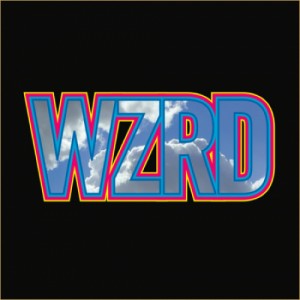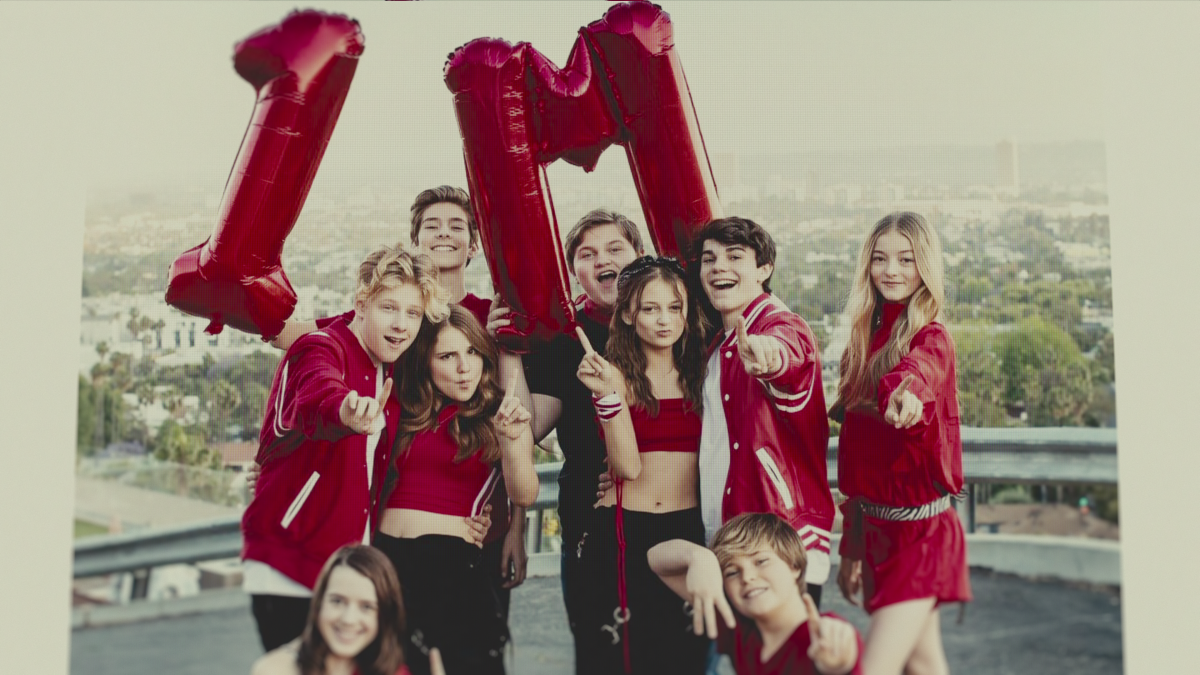
A staple of the hip hop scene since 2009’s release of his debut mix tape, A Kid Named Cudi, Cleveland born musician Kid Cudi has proven unafraid of taking risks. Exemplifying this fearless nature was 2010’s Man on the Moon II: The Legend of Mr. Rager, a dark and emotional record that helped to separate him from the fun-loving reputation brought about by his studio debut, Man on the Moon: The End of the Day, an ode to euphoric drug use and nearly all of life’s remaining forbidden pleasures. However, Cudi made Mr. Rager look like nothing more than a run-of-the-mill album with the February 28, 2012 release of WZRD, a work bearing the title of its creators, a rock band formed with close friend and producer Dot Da Genius.
Always hungry to illustrate his originality, Cudi does just this on WZRD; unfortunately, the quality of the music itself does not match that which has become expected of the ultra-evolutionary artist. This is not to call WZRD an atrocity or anything, because it simply is not. However, despite possessing flashes of creative genius, WZRD fails at fully achieving any sense of groundbreaking originality.
The bulk of WZRD‘s worst moments occur when Cudi and Dot Da Genius appear to be trying too hard to sound like a legitimate rock band. WZRD commences with an instrumental track entitled “The Arrival”, which fails to live up to the hype caused by this highly anticipatory title. Similarly, “Love Hard” does little to impress listeners, sounding more like a misguided blend of techno, hip hop, and alternative rock than a well executed attempt at individuality.
This may be a result of the fact that Kid Cudi does not possess the vocal prowess required for the majority of WZRD‘s tracks. Most notably, Cudi truly butchers his vocal rendition of “Where Did You Sleep Last Night?”, an emotional anthem that gained immense notoriety after Nirvana made it their own in the early 1990s. Kurt Cobain’s MTV: Unplugged performance of this song may very well be the defining performance of 1990s rock and roll, and Cudi simply does not come close to filling these shoes; this is nothing to be ashamed of, as not many could compete with Kurt Cobain, but listeners cannot help but wonder why Cudi would even try.
Ironically, with the album’s rock-based structure being so highly publicized, the best tracks on the album are those that sound more like a seamless blend of multiple genres, rather than those that sound like an uncomfortable, forced attempt at head-banging. A prime example of this comes in WZRD’s most recognizable track, “Teleport 2 Me, Jamie”, a hybrid sounding song that typifies the true originality of Kid Cudi. In a similar manner,”Efflictim” is an emotional track that often sounds grunge influenced without pushing the boundaries of copyright infringement and utter unoriginality. “Efflictim” features Cudi playing simplistic acoustic guitar and singing vocals well within his range, as opposed to the less impressive tracks that appear to strain to stay within the blueprint of rock and roll music.
While listening to WZRD, listeners would not be remiss to feel as though Cudi may have misinterpreted the meaning of the word “originality.” If Cudi’s hybrid album had consisted of eleven tracks similar to “Efflictim”, WZRD could have cemented Cudi amongst the creative geniuses of our generation. However, it was not, as it simply did not produce the desired result of any new album: an abundance of great music.
This being said, one must admire Kid Cudi’s courage in putting out an album with such great risk. Also, it is important to remember that WZRD is a relative success in comparison to similar albums that attempted to bridge the gap between hip hop and rock, most notably Lil Wayne’s 2010 crossover album, Rebirth, which was little more than a poor excuse for music of any sort. Once again, the Kid from Cleveland proved to fans and critics alike that music is truly his passion and an outlet for his current emotions, rather than a cash crop destined to dry out with time. This is undeniably respectable in its own right.








